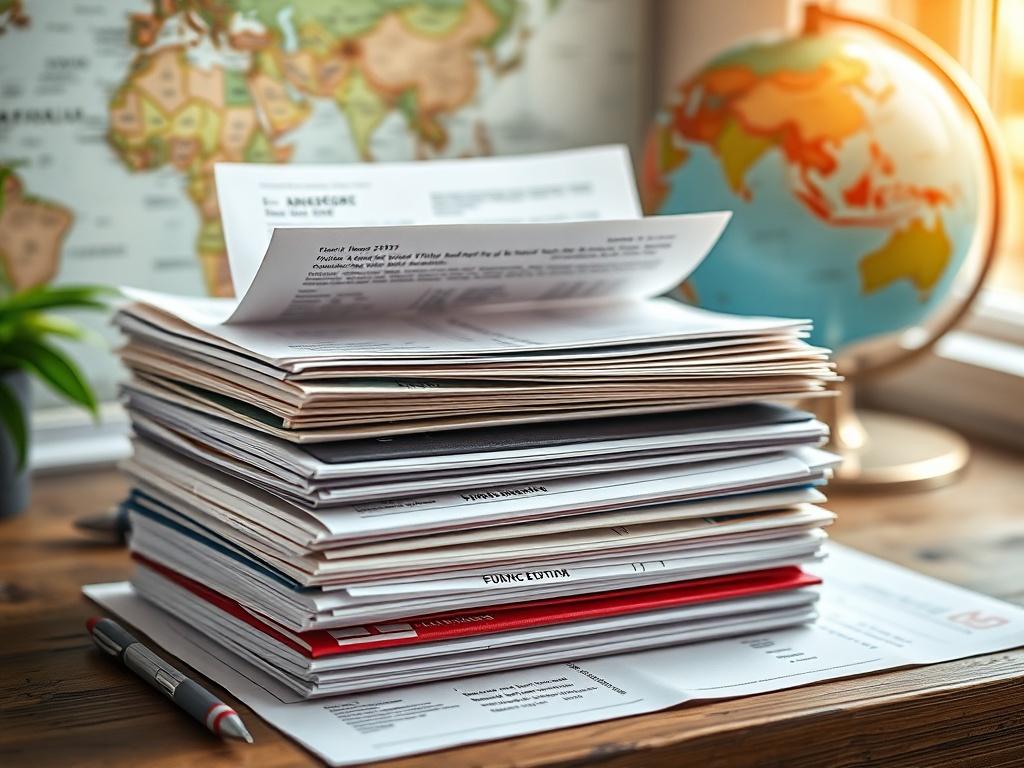
Studying abroad is an exciting opportunity that opens doors to new cultures, experiences, and friendships. However, to embark on this overseas study adventure, it's crucial to understand the necessary paperwork involved. Learning about the essential travel documents will not only help you navigate the foreign landscape but also ensure a smooth transition into your new academic environment. This blog post aims to guide you through the key travel documents needed for your journey, empowering you to prepare confidently for this transformative experience.
Before you set off on your journey, familiarizing yourself with the required documentation can save you time and avoid unnecessary stress. From passports and visas to health insurance and academic records, knowing what you need will allow you to focus on enjoying your time abroad. Additionally, organizing your study abroad documentation effectively can help you stay on top of deadlines and requirements. Read on as we delve into the essential paperwork for your overseas study adventure and offer practical tips for keeping everything in order.
Understanding the essential paperwork for your overseas study adventure
Studying abroad opens up a world of opportunities and experiences, but it also requires careful preparation. Before embarking on your overseas study adventure, it's essential to gather and understand the necessary paperwork that will facilitate your journey. Proper documentation ensures a smooth transition to a new country while allowing you to focus on your education and cultural immersion. Whether you’re an undergraduate student or pursuing further studies, being informed about what documents you need can significantly ease the process.
Paperwork can vary depending on your destination, program, and nationality, so make sure to research thoroughly. Common documents include your passport, student visa, acceptance letters, and health insurance. Missing or incorrect paperwork can lead to unnecessary delays or complications. By knowing what essential travel documents to acquire and keeping them organized, you pave the way for a successful and enjoyable study abroad experience. This knowledge not only enhances your confidence but also sets the groundwork for personal and academic growth while you explore a new culture.
Key travel documents you need before studying abroad
Before embarking on your overseas study adventure, ensure you gather the essential travel documents that pave the way for a smooth experience. First and foremost, your passport serves as the primary identification document for international travel; make sure it is valid for at least six months beyond your intended return date. Additionally, you might require a student visa specific to the country you’ll be studying in. This visa often necessitates proof of enrollment, financial capability, and sometimes health insurance—factors that demonstrate your preparedness to live and study abroad.
In addition to your passport and visa, other crucial documents include your acceptance letter from the educational institution, proof of accommodation, and financial statements. These items not only confirm your status as a student but also help you navigate local bureaucracies upon arrival. Don’t forget to compile health-related documentation such as vaccination records or international health insurance, which are increasingly required by many countries. By preparing these documents in advance, you can significantly reduce stress and ensure a successful transition into your new academic environment.
Tips for organizing your study abroad documentation effectively
Organizing your study abroad documents is crucial to ensure a smooth journey. Start by creating a dedicated folder or digital directory specifically for your travel paperwork. Include essential documents such as your passport, visa, acceptance letter, and proof of financial support. Consider using a checklist to keep track of everything you need. This method not only helps you stay organized but also provides peace of mind, allowing you to focus on your overseas study adventure without the stress of misplaced paperwork.
Additionally, it's wise to make both physical and digital copies of all your important documents. Store copies securely in a separate location from the originals, such as in your luggage and in a cloud storage service. This way, if you lose any documentation while traveling, you still have access to the necessary information. Lastly, familiarize yourself with the specific requirements of your host country, as they may have unique regulations or additional paperwork needed. Being proactive about your documentation will help you navigate any hurdles and make the most of your overseas study experience.